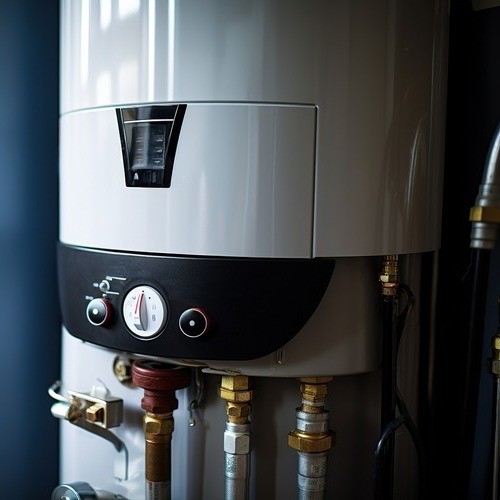
What parts of a water heater may need repair?
If cold showers are your thing, you may not be concerned about needing a repair or replacement of a water heater. Unfortunately, there are many other reasons why you need hot water, such as washing clothes and dishes, so while paying for water heater repair or a replacement may be an expense and inconvenience, it is something that many homeowners face. If you need water heater repair in Santa Clarita, CA, or surrounding areas, you likely have many questions, such as what part of your water heater requires repair. Our team can be there to provide you with the answers you need.
When should you schedule a water heater repair?
Many signs may indicate you need to call a plumber for a possible water heater repair. Before you make that phone call, here are the top five things to be aware of:
1. Water Not Heating
Day in and night out, we assume there will be hot water for our needs, but then you may find that your water should be warmer. If you find yourself asking why your water heater isn’t getting hot, three things could be causing this:
- The thermostat
- Problems with the heating element
- A water heater that is too small for your needs
If you believe any of these issues may be causing your problems, you can do a few things. Before you call a plumber, check the thermostat setting. Somebody may have moved it accidentally, so ensure it is about 120 degrees or higher. If it is, the problem may be with the heating element.
A problem with the heating element is a water heater repair that a plumber can handle by replacing it. If the heating element is still working, the plumber may recommend replacing the water heater with a larger tank, depending on your household’s needs.
2. Leaking Water Heater
Leaks can occur in a water heater for many different reasons. If you notice water on the floor coming from the water heater, you could have a leaking water heater. Check all the water connections at the wall and on the water heater to ensure they are tight, and schedule a service call for further inspection of your water heater to get to the root of the problem.
There could be something more serious like the bottom being rusted, the tank’s seams leaking, or water coming from the top, and tightening the connection doesn’t stop the leak.
3. Noisy Water Heater
Your water heater should not be making much noise, so it might need to be flushed if you notice it making a significant amount of noise. Call a plumber for a water heater repair service. Sediment can build up in the water heater’s bottom over time and become stiff and thick.
This makes it impossible for the water heater to use more energy to heat the water, and the longer sediment builds up, the more strain the unit is under and will eventually quit working. You can try a water heater repair by flushing the tank, but chances are you’ll be replacing your water heater.
4. Rusty Water
It isn’t a secret that water makes metal rust, and a water heater tank is made of steel. Exposure to water 24/7/365 eventually rusts out the tank and water pipes, and you may begin seeing colored and rusted water coming from the faucets. Try flushing the tank. If that doesn’t improve the water’s color, it could be that the tank is beyond water heater repair, or you could have rust in your pipes.
5. Water Heater Age
A water heater does not last forever, with an average lifespan between 8 and 12 years. Because of this, you will eventually need to replace it. Suppose the cost of water heater repairs is about 25% or more of what a new unit will cost. In that case, it is a good idea to schedule a water heater replacement, especially if you are getting close to the end of the lifespan of your current unit.
How do you flush sediment out of a water heater?
Your owner’s manual will have step-by-step instructions on how to flush the water heater. Somebody should perform the technique shared here at least yearly or twice a year if there is hard water in your area.
- Drain all the water out of the water heater
- Turn off the electricity or gas to the water heater.
- Turn the cold water off at the water heater.
- Have a hot water tap running at another location.
- Connect a garden hose to the drain valve on the water heater.
- Place the other end either outside or in a bucket.
- Open the drain valve and allow the water to flow until it comes out clear.
- Shut the drain valve and remove the garden hose.
- Reconnect the water, electricity, and water.
- And you’re done!
The Bottom Dollar
You may wonder how to determine when the cost of water heater repair is worthwhile. If your water heater is less than eight to ten years old and the repair cost is less than 25% of the price of a new water heater, the cost of water heater repair is well worth the cost. But if you’ve had several water heater repairs in the past year, replacing the unit would be a better value.
If you would like someone to advise you on whether you should schedule water heater repair or replacement, our team is always ready to help, so contact us for more information.

